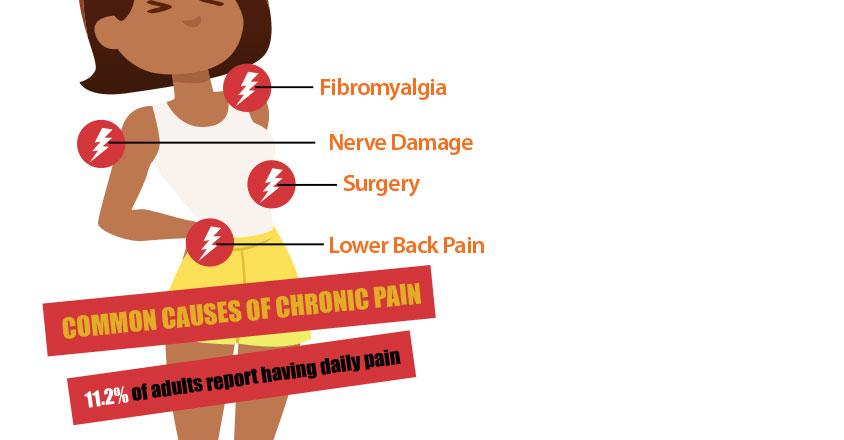Pain, pain go away
Chronic pain persists, sometimes for years. How individuals experience pain varies widely. For some, it can feel like a dull ache; for others, a burning or throbbing sensation. Regardless of how you describe it, chronic pain is debilitating and can interfere in daily activities. It also causes other functional and psychological symptoms, such as fatigue, trouble sleeping and mood changes.
Tips on how to manage your chronic pain:
Move. We know: You hurt. You don’t want to move. However, physical activity helps in several ways. Exercise builds strong muscles and bones. Exercise also releases endorphins—feel-good hormones—so you can better cope with pain. Finally, being active prevents obesity.
Try physical or occupational therapy. Physical therapy treats pain through movement, with strengthening and range-of-motion exercises, and occupational therapy gives you skills and strategies to manage pain.
Relax. Meditation and other relaxation techniques help you better manage stress (being in pain is stressful) and reduce tension that can aggravate pain.
Stay engaged. Spending time with family and friends, and engaging in activities that bring you pleasure, help take your mind off pain and remind you of the positive aspects of life.
Explore complementary health modalities. Medical literature provides some support that complementary approaches, such as acupuncture, massage and yoga, may be helpful in alleviating lower back and arthritis-related pain, and relaxation training and biofeedback may reduce pain associated with migraines and chronic headaches.
Stop smoking. It’s bad for your health, and nicotine can make some pain medications less effective.
Practice good self-care. Eat a healthy diet that includes plenty of fresh fruits, vegetables and whole grains, and limit sugar, saturated fats and alcohol. Maintain a healthy weight and get plenty of sleep.
Genesis HealthCare System’s Health and Wellness content conveniently provides accurate and helpful information. Your health history and current health may impact suggestions provided through our Health and Wellness content. Although we hope this information is helpful, it is not a substitute for your doctor's medical advice. Before making any significant changes, please consult your doctor.

Are you living with chronic pain? Here are some tips to help manage it.















